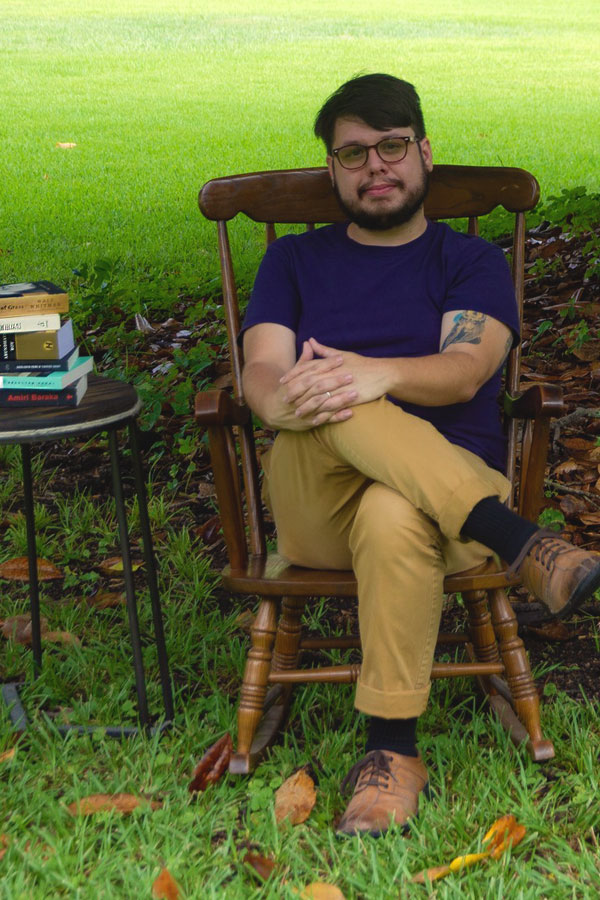Salazar’s ‘Headless John the Baptist Hitchhiking’ nominated for MIAL Award
Questions linger with C.T. Salazar.

Sometimes, Salazar finds the answers. There are other times, though, when the solutions are elusive, so Salazar turns to writing as a way to find a route to a resolution.
Salazar’s latest project, “Headless John the Baptist Hitchhiking,” took seven years from the first draft to its publication in February 2022. Although the project was “completed,” Salazar considers his first full-length collection of poetry a record of his life with some of those questions.
“Writing the book was a process not about finding the answers, but about measuring how my relationship to those questions changes and grows with time,” Salazar said.
“Headless John the Baptist Hitchhiking,” which was a finalist for the Theodore Roethke Memorial Prize, recently earned Salazar a Mississippi Institute of Arts and Letters (MIAL) Award nomination in the Poetry category.
Salazar, who earned a bachelor’s degree from Mississippi University for Women in 2015 and graduated from The W’s MFA in Creative Writing in 2018, is one of five people with ties to The W to receive a nomination for a MIAL Award. T.K. Lee (“Scapegoat”) also was nominated in the Poetry category. Ian Childers (“Pots for Simon”) was nominated in the Visual Arts category, and Dr. Joe L. Alexander (“DJ2 Extravaganza” and “The Ruffner Mountain Express”) and Dr. Valentin Bogdan (“Three Songs on the Poetry of Mihai Eminescu”) were nominated in the Music Composition, Classical category.
The winners will be announced June 3, 2023, at the 44th Annual Awards Gala in Oxford.
“It’s really nice to know that the things that interest me and have me writing interests other folks in the community, too,” said Salazar, who has been nominated for a MIAL Award three times.
Salazar said it is difficult to describe his feelings about receiving so much praise for “Headless John the Baptist Hitchhiking,” which examines how being an American – especially a Southerner – in the 21st century is a “very headless experience” to him in terms of direction and logic. He said he wanted to get past a lot of the implications that govern his day-to-day life and into a way of thinking that maybe didn’t have as much to do with thinking at all.
If that sounds like Salazar is still searching, he is. In fact, he considers himself an “animal that burrows” because he often starts in one place and burrows down further and further in a hunt for his prize.
“I think really good writing comes from turning over just one idea for longer than our day-to-day life tries to encourage us to,” Salazar said. “I like that kind of focus. I think with all of my writing, they’re just attempts and angles at similar ideas. What is actual faith? What is belonging? What is our best relationship to each other and to the world? What’s the most just version of ourselves? Those are questions that fascinate me.”
Salazar said he is sitting with a manuscript or a manuscript and a half of poems and trying to determine if it’s a book. He said he also is working as an editor on two projects, is working on a play-novel hybrid and is slowly writing longer essays that dive into some of Mississippi’s poets of the past — their lives, their poetry. Salazar is excited about where the research on those poets will take him and hopes the work eventually will turn into a book. Until then, Salazar will continue to ask questions and try to find the answers – even if it takes him seven years to reach a conclusion.